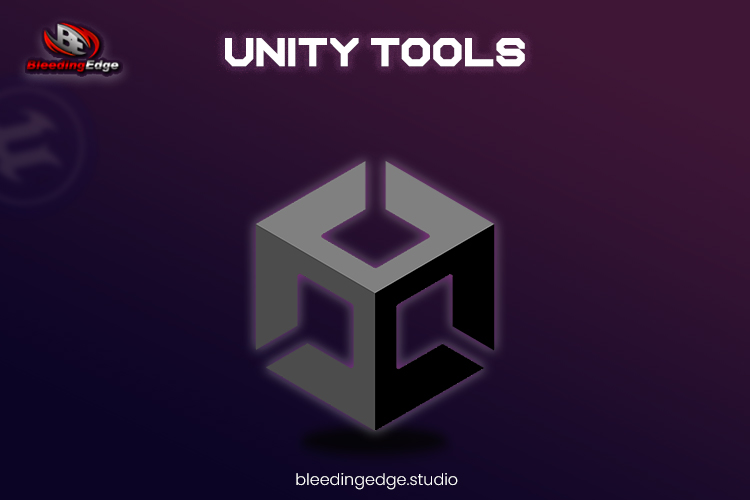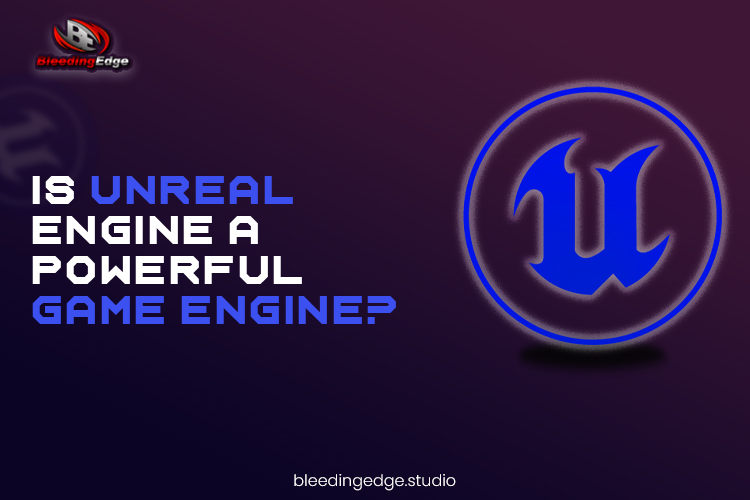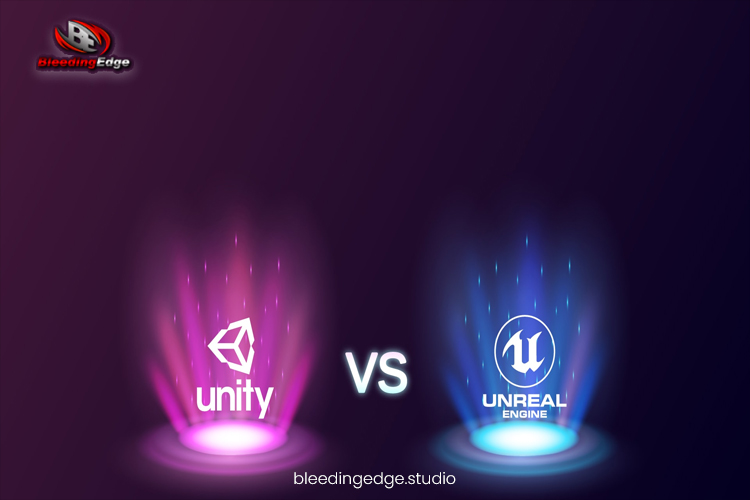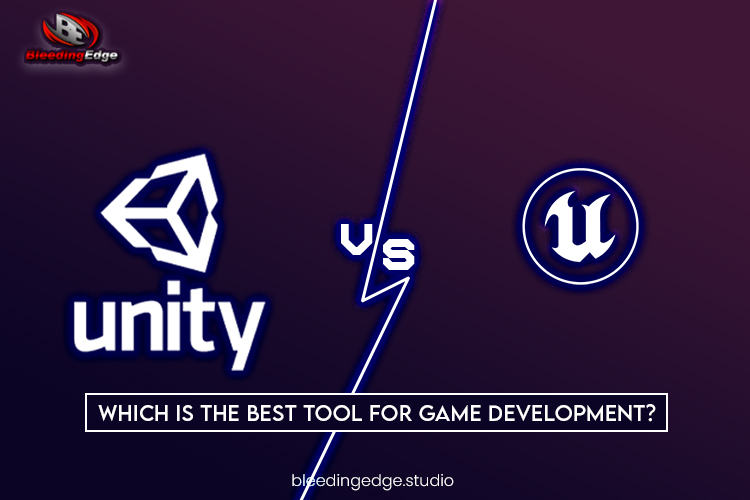Unity and Unreal Engine: Tools for Game Development:
Game development has always been challenging for game developers and game studios. To make a game that is both visually stunning and engaging, game developers need the right tools. In the past, game development tools were limited to expensive and proprietary software that larger game studios could only afford. However, with the rise of game engines like Unity and Unreal Engine, game development has become more accessible to small indie game developers and hobbyists.
Unity and Unreal Engine are two of the mass popular game engines. Both of these engines offer an extensive set of features and tools for game development. This blog will compare and contrast Unity and Unreal Engine and help you decide which engine fits your game development needs.
Several tools are available for game development, depending on the game you want to create and the platform you want to develop. Here are some popular ones:
- Unity: Unity is a popular game engine that can create 2D and 3D games for various platforms, including mobile, desktop, and consoles.
- Unreal Engine: Unreal Engine is another popular game engine that can create high-end 3D games for various platforms, including mobile, desktop, and consoles.
GameMaker Studio:
GameMaker Studio is a user-friendly game development tool that can create 2D games for various platforms, including mobile, desktop, and consoles.
Construct:
Construct is another user-friendly game development tool that can create 2D games without programming skills.
- RPG Maker: RPG Maker is a tool that can create 2D role-playing games (RPGs) without programming skills.
- Adobe Creative Suite: Adobe Creative Suite includes tools such as Photoshop, Illustrator, and After Effects, which can be used to create game art, animations, and user interfaces.
- Autodesk Maya: Autodesk Maya is a 3D modeling and animation tool that can create game assets, such as characters and environments.
- Blender: Blender is a free and open-source 3D modeling and animation tool that can be used to create game assets.
- Visual Studio: Visual Studio is an integrated development environment (IDE) that can be used to write and debug code for game development.
- GitHub: GitHub is a web-based platform that stores and manages game development projects, collaborates with other developers, and tracks code changes. We will discuss Unity and unreal Engine here.
What is Unity?
Unity is a cross-platform game engine for developing video games, simulations, and other interactive experiences. It was first released in 2005 by Unity Technologies and has since become one of the most popular game engines in the industry.
Unity allows developers to create games for various platforms, including PC, mobile, console, and virtual reality. It provides various tools and features to help with game development, such as a visual editor, scripting language, physics engine, and asset store.
One of the key strengths of Unity is its accessibility, with a user-friendly interface that makes it easy for beginners to get started with game development. However, it also has the flexibility and power to allow experienced developers to create complex and sophisticated games.
In addition to game development, Unity is also used in architecture, engineering, and film fields. It can be used to create virtual environments and simulations for various applications.
Getting started with Unity:
Unity is a powerful game development platform that can create games and interactive experiences for various platforms, including desktop, mobile, and console. Here are some ways to get started with Unity:
- Download and install Unity: The first step is downloading and installing Unity on your computer. You can download the latest version of Unity from the official website.
- Create a new project: Once you have installed Unity, you can create a new project by selecting “New Project” from the Unity Hub. Give your project a name and select the location where you want to save it.
- Choose a template: Unity offers several templates to help you start your project. You can choose a 2D or 3D template based on the game you want to create.
- Familiarize yourself with the interface: Unity has a complex interface with many panels and windows. Spend time familiarizing yourself with the interface by watching tutorials and experimenting with the different tools and features.
- Start creating: Once you familiarize yourself with the interface, you can create your game. Add objects to your scene, create scripts to control their behavior, and use the built-in tools to create animations and effects.
- Test and iterate: As you create your game, test it frequently and adjust as needed. Unity makes it easy to test your game in real-time, so you can see how it looks and feels as you make changes.
- Publish your game: When your game is complete, you can publish it to a variety of platforms, including desktop, mobile, and console. Unity provides built-in tools to help you package and deploy your game to your desired platform.
- Unity has a vast community of users, so don’t hesitate to ask for help or advice in forums and online communities. You can create amazing games and interactive experiences using Unity with practice and perseverance.
Explain the Unity Tools:
Unity is a popular game engine for creating games and other interactive experiences. A wide variety of Unity tools available can help developers create, test, and refine their projects. Some of the most commonly used Unity tools include:

- Unity Editor: This is the primary tool for building and editing Unity projects. It includes various features and tools that allow developers to create and customize game objects, scenes, and user interfaces.
- Unity Asset Store: The Asset Store is a marketplace where developers can buy and sell assets such as 3D models, sound effects, and scripts. This can save developers time and effort when building their projects.
- Unity Remote: This tool allows developers to test their Unity projects on a mobile device in real-time. This can be especially useful for testing user interfaces and other mobile-specific features.
- Unity Analytics: Unity Analytics provides insights into how users interact with a Unity project. This can help developers to refine their projects and optimize them for better user engagement.
- Unity Collaborate: This tool allows multiple developers to work on the same project simultaneously. It provides version control and collaboration features, which can streamline development.
- Unity Test Runner: This tool allows developers to run automated tests on their Unity projects. This can help ensure the project works as intended and save time by catching bugs early in the development process.
- Unity Performance Reporting: This tool provides insights into how a Unity project performs regarding frame rate, memory usage, and other key metrics. This can help developers to identify performance bottlenecks and optimize their projects for better performance.
These are just a few of the Unity tools available to developers. By leveraging these tools, developers can streamline their workflows, improve the quality of their projects, and bring their ideas to life more quickly and efficiently.
What is Unreal Engine?
Unreal Engine is a popular game engine developed by Epic Games. It provides developers comprehensive tools to create high-quality, visually stunning games for various platforms, including PC, console, mobile and virtual reality.
Unreal Engine features a robust and flexible rendering system that can render highly realistic and immersive graphics, a powerful physics engine that can simulate complex physical interactions, and a wide range of tools and APIs to create gameplay mechanics and build game logic.
Unreal Engine also includes a suite of development tools, such as the Unreal Editor, Blueprints visual scripting system, and a visual debugger, to aid developers in creating and debugging their games.
Unreal Engine is widely used in the NFt and has been used to create many popular games, including Fortnite, Gears of War, and Batman: Arkham Asylum. It is also used in other industries, such as architecture, engineering, and film and television production, to create interactive experiences and visualizations.
Getting started with Unreal Engine:
Unreal Engine is a powerful game engine that allows you to create games, simulations, and visualizations across multiple platforms. Here are some ways to get started with Unreal Engine:

- Download and install Unreal Engine: Visit the Unreal Engine website and download the latest version of the Engine. Install it on your computer.
- Learn the basics: Unreal Engine has comprehensive documentation and learning resources. Start with the official Getting Started Guide, which covers the basics of the Engine and how to create your first project.
- Explore the Editor: Familiarize yourself with the Unreal Engine editor by creating a simple project and exploring the different panels, tools, and menus.
- Create your first project: Once familiar with the Engine and the editor, start creating your project. You can start with a simple game or simulation or work on a more complex project.
- Learn from tutorials and online resources: Many tutorials and resources available online can help you learn Unreal Engine. Check out the official Unreal Engine documentation, YouTube channels, and online courses to improve your skills.
- Join the Community: Unreal Engine has a large and active community of developers and creators. Join online forums, groups, and social media channels to connect with other Unreal Engine users and learn from their experiences.
- Practice and Experiment: The best way to learn Unreal Engine is by practicing and experimenting. Keep creating projects and trying new features and tools to improve your skills and creativity.
- Remember, mastering Unreal Engine takes time and effort. Be patient and persistent, and keep learning and experimenting with creating amazing games and simulations.
- Explain the Unreal Engine Tools:
- Unreal Engine is a popular game development engine with many tools and features for creating high-quality games. Some of the key tools and features of Unreal Engine are:
- Blueprint Visual Scripting: This node-based visual scripting language allows developers to create complex gameplay mechanics and interactions without writing code.
- Level Editor: This tool allows developers to create and edit game levels easily. It includes terrain sculpting, mesh painting, and foliage placement.
- Material Editor: This tool enables developers to create and edit materials for their game’s 3D models. It includes a node-based interface that allows for complex material setups.
- Animation Tools: Unreal Engine includes a suite of animation tools that allow developers to create and edit animations for characters and objects in their game.
- Blueprint Debugger: This tool helps developers debug their Blueprint scripts and identify any errors or issues in their code.
Visual Effects Tools: Unreal Engine provides various tools for creating high-quality visual effects, including particle systems, lighting tools, and post-processing effects. - Audio Tools: Unreal Engine includes various tools for creating and editing game audio, including spatialization, mixing, and effects processing.
- Packaging and Deployment Tools: These tools enable developers to package and deploy their game to various platforms, including PC, consoles, and mobile devices.
Overall, Unreal Engine provides a comprehensive suite of tools and features for game development, making it a popular choice for game developers worldwide.
Unity and Unreal Engine:
Unity and Unreal Engine are powerful game engines widely used in game development. While both engines have similarities, they also have some key differences.

Unity is known for its ease of use and accessibility, making it a popular choice for indie developers and beginners. It has a large community of developers and a wealth of resources, including tutorials and assets. Unity supports various platforms, including mobile, console, and desktop, and has built-in virtual and augmented reality development support. Unity is also a more affordable option, with a free version and lower licensing costs for larger projects.
On the other hand, Unreal Engine is known for its advanced graphics capabilities and powerful features. It has been used to create many popular AAA games and is often the go-to choice for large-scale projects. Unreal Engine also has a strong community of developers and resources available, including an extensive library of assets and plugins. Unreal Engine is particularly well-suited for creating photorealistic environments and has robust tools for cinematic storytelling. However, learning can be more challenging and requires a more powerful computer to run smoothly.
Unity is a good choice for beginners and indie developers who want an easy-to-use and accessible game engine. In contrast, Unreal Engine is better for experienced developers who need advanced graphics capabilities and powerful features. Ultimately, Choosing between Unity and Unreal Engine will depend on your specific needs and goals as a developer.

